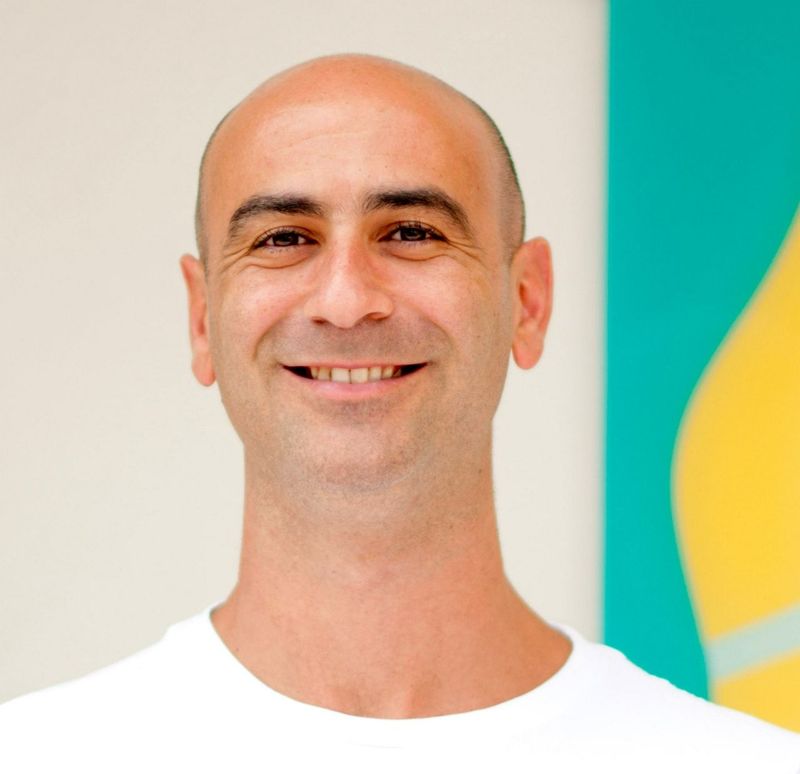Wissam Awad; The Benefits of Hypnotherapy and Regression Therapy
- Published: 22 February 2018 22 February 2018
 Wissam Awad
Wissam Awad
Wissam Awad is a Hypnotherapist specialising in Regression Therapy and Inner Child Healing. He is a trainer at the Regression Academy, responsible for the training programs in Romania and India and works alongside Andy Tomlinson, a world renowned pioneer and authority on Regression Therapy. Wissam is passionate about working with clients to liberate themselves from restricting emotional and behavioural patterns so that they can move forward in a joyful and empowered way. He also integrates body therapy with trance work in his sessions, which has a powerful effect on clearing unresolved 'body memories'. Wissam has worked in Switzerland and Thailand and now has a private practice in London.
An Interview with a Hypnotherapist
What lead you to become a hypnotherapist and regression therapist?
I fell into it by being at the right place at the right time! I decided to quit my job and take a sabbatical. During that time I explored many healing modalities while de-stressing from busy London life. During my explorations, I came across a shaman who was a clinically trained hypnotherapist and he was teaching shamanic regression using hypnotherapeutic techniques. During the training I was amazed at the speed with which people would heal from long standing issues. I started practicing shamanic regression and eventually realised that regression therapy is my passion in life. Through a series of synchronicities, I came across Andy Tomlinson who I just knew I had to study with. He is one of the leading pioneers in regression therapy and founder of the Past Life Regression Academy. Now I am a trainer with the Regression Academy, responsible for the training programs in Romania and India and run my own practice in South West London.
Can you tell us what regression therapy and inner child healing are?
During the first 7 years of life we are like sponges, absorbing all we see, what we are told and we form our personalities to become who we are today. It is during this time that many of our beliefs are formed, programmed into our subconscious mind. It is well understood that we feel the way we do due to our past experiences, especially how we were treated as babies and young children. Some of these beliefs formed while growing up may be positive and others may be responsible for feelings that result in pain, sadness and suffering. Today as adults, we may be unaware what many of our old programmed beliefs are, especially the ones holding us back and causing us pain and suffering. In short, Regression Therapy, whether past or current life regression, takes us back to the source of our issues in order to transform them. This results in profound changes in the subconscious mind, the storehouse of how we feel in a given situation.
How does past and current life regression differ?
The techniques used for both are extremely similar. The main difference is that some of the current life scenarios are verifiable memories, which often family members can verify whereas past life memories are more challenging to verify.
What is a past life? Some believe that it is a real past life. Some believe the mind creates a story, like a metaphor, to effect a healing and some believe that we tune into a pool of past human experiences, often referred to as the collective unconscious. As a therapist, I am not so concerned with the meaning of what a past life is. What is of importance to me is that a healing takes place when these stories (Whether they are past or current life stories) are visited and transformed. The fact is people do access ‘past life memories’ and people do heal from visiting these stories. It is up to the individual to decide for themselves the meaning placed on these experiences. However, the effect of experiencing a past life and releasing and transforming the traumatic memories most often enables a profound healing to take place and that is what excites and motivates me to work in this field.

Is having hypnotherapy the best way to stop smoking?
Hypnotherapy has been recognised by the British Medical Council as the most effective way to stop smoking. However, there are no guarantees and it is not a magic fix. The client has to be highly motivated to stop smoking for hypnotherapy to help them stop. It is ultimately the smoker who stops and hypnosis gives them the tools necessary to assist them succeed. If you want to stop smoking but are not highly motivated to do so, a stop smoking session is a waste of time and money. Instead, have hypnotherapy to work on raising your motivational levels. Once they are high enough then book a stop smoking session. Most hypnotherapist charge between £150-£175 for the session and smokers smoking 20/day will recuperate their money within a month.
Can anyone be hypnotised and can it be dangerous?
Let me clarify what hypnosis is. Hypnosis simply means you are feeling relaxed and have a focus. This focus is usually the voice of the therapist. Hypnosis is extremely safe as is the state of relaxation. Anyone can be hypnotised or shall we call it relaxed, as long as they allow it to happen. A therapist can guide you to relax with various relaxation techniques. It is safe and most people look forward to their sessions as it is an opportunity to relax from their busy lives.
What does it feel like to be hypnotised during a session?
Hypnosis is similar to when you are feeling relaxed prior to falling asleep or when you first wake up and are still deeply relaxed. It is also similar to being in meditation where you perhaps focus on your breath. Hypnosis is a wonderful combination of a deeply relaxed body and a sharp mind. During hypnosis you are in control at all times, you can open your eyes anytime you choose, or speak or decide not to. It is up to you as you are awake, relaxed, focused and in control, as you would be if you simply closed your eyes and took a few relaxing breaths. Please note, if you have seen stage hypnosis, this is a completely different thing altogether and has nothing to do with therapeutic hypnosis.
Would someone need to do any preparation before being hypnotised?
Preparation is not needed prior to a hypnotherapy session. A skilled hypnotherapist will be able to guide you through the process effortlessly. Clients usually report that they enjoy the process and feel very relaxed throughout. However, some people find guided meditation tapes or hypnosis recordings enables them to practice deepening their levels of relaxation and letting go and gives them an experience of going into and out of trance.
Are there any other therapies that compliment hypnotherapy and regression therapy to increase its effectiveness?
Any relaxation practice where the mind is allowed to be still can be useful such as meditation or yoga nidra as it allows the mind to practice going into trance. However, hypnotherapy and regression therapy are complete systems developed and refined over the last 50 years and are proven, effective stand alone healing modalities. In fact, some medical doctors are now adopting hypnosis and regression therapy due to their ability to assist patience with a variety of conditions. There are two books by Dr Peter Mack, a brain surgeon, called ‘Healing the Deep Hurt Within’ and ‘Life Changing Moments in Inner Healing’, on his use of regression therapy at the hospital he works at, which shows the profound results that can be achieved with these therapies.
However, working with parts therapy, Emotrance, NLP, Reiki and other energy modalities can all be useful and complimentary with hypnotherapy and regression therapy.
How does past life regression therapy help with physical and emotional problems?
I like to look at the human body as an energy system. Scientists can measure the human energy field and even measure the energy or frequency of thoughts. So the next time you feel angry or sad etc, notice where your body tightens up. Most people will feel a tightness in the stomach or chest, or a lump in their throat. What you are feeling here is the energy of these emotions stored in the body. If these energetic emotions are allowed to build up over time, they can result in unexplained physical pains and sometimes into illnesses. So, the types of physical problems regression therapy can help or alleviate is the type medical doctors have looked at and are unable to explain the cause. This is especially so with a pain that started after an intense period of stress or trauma. This indicates to me an area of trapped energy which is causing the pain and simply needs to be cleared. Trapped energy responds extremely well to regression therapy, whether past or current life regression. By focusing on this trapped energy and regressing back to when it was first formed, the energy can be cleared which will in turn, clear the pain. It can be fascinating when a client accesses a past life linked to a pain, they can often experience being wounded in that past life in the same place as where the pain is manifesting in the body.
How long does it take and how many sessions are usually necessary?
The first session is 2.5 hrs as half an hour is allocated for the interview time. Any follow up sessions are 2 hrs long. The number of sessions needed depends on the nature and complexity of the presenting issue, how long the client has had it and how the client responds to the therapy. I can say for most issues I rarely see a client for more than 5 sessions, usually between 1-3 sessions. Sometimes a client will come to me due to feelings of sadness or feeling stuck in life and after resolving them, they may return and say “now I want to stop smoking” or now I want to work on a different issue, for example guilt or anger etc. So I may then work with them again on a different issue.
Are the effects long lasting, or is this a temporary quick fix?
The effects are permanent and clients can be rather surprised to notice an issue that seemed such a big deal for so long can be eliminated after only a few sessions. I remember a client in his early 30’s came to see me about his feelings of depression that he had since he was around 10 years old. He responded extremely well to the sessions and when he came back for his 5th session, a month after his previous session, he told me that within the whole month he had only felt sad twice and not depressed at all. He was quick to explain that sadness is different from the feeling of depression and was concerned that his depression may return. I am happy to report he is living a life free from depression, and this has been the case for over a year and a half now.
For more information visit www.WissamBeWell.com
